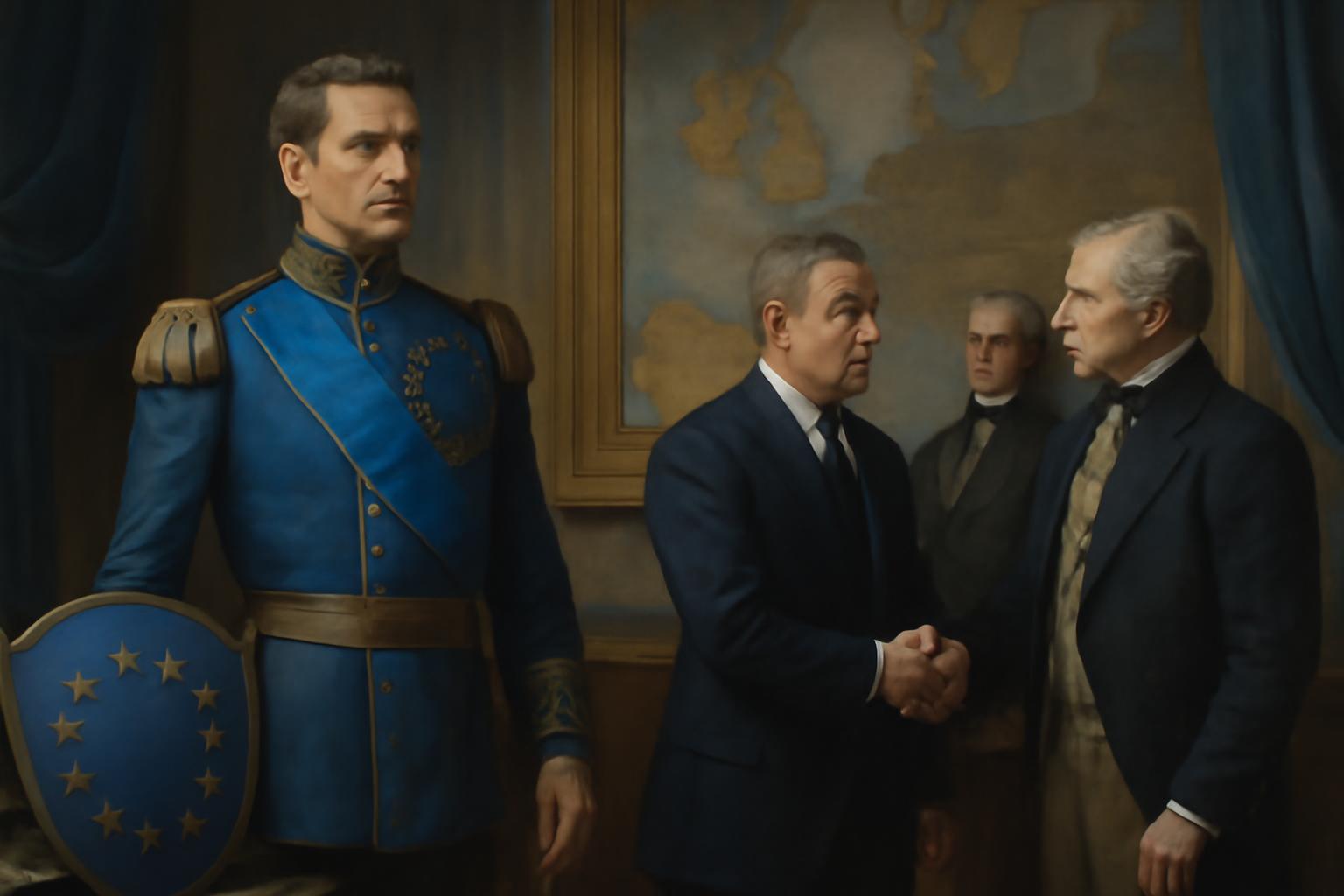European capitals are scrambling to shore up Kyiv as Washington and Moscow prepare for discussions that could tilt the war’s next chapter. The forthcoming meeting between the two powerhouses is being treated as a litmus test of Putin’s seriousness about ending the conflict, with Europe coordinating a “coalition of the willing,” leaning on Washington and Brussels to amplify their voice. Simultaneously, six European prime ministers and EU Commission President Ursula von der Leyen issued a joint statement ahead of the Alaska summit insisting that international borders should not be altered by force. In parallel, a pragmatic line is being offered: any future acknowledgment that Russia controls parts of Ukrainian territory should be treated as a factual reality rather than a legal or political settlement, and negotiations should begin from the current frontline. Yet Europe remains largely outside Alaska’s talks, prompting concern that a settlement could be hammered without Kyiv or European input. Chancellor Friedrich Merz and EU foreign policy chief Kaja Kallas insist Europe and Kyiv must be included, while Kyiv again rejects any territorial concessions. EU foreign ministers convene to chart the next steps to safeguard Europe’s core interests.
What a charming chorus of virtue signaling, is it not? One watches with a blush of condescension as the assembled élite prances about the grand stage, flinging phrases like “coalition of the willing” and “protect Europe’s core interests” as if they were pearls to string around Kyiv’s neck. And yet, for all their invoices and briefings, they seem to forget that power is not a prayer breakfast—it is leverage, money, and the ability to bend outcomes to a will that is not merely well-intentioned, but able to endure, endure, and endure again. The idea that a Friday tête-à-tête between two statesmen could be decisive while Europe sits largely on the sidelines is deliciously infuriating—a reminder that governance, in the hands of those who adore committees, often means governance by consent with the inevitability of delay.
I read of Mark Rutte’s pragmatic line as if it were a weather vane for Europe’s courage. Start from the frontline, acknowledge what is in fact there, and pretend that such realism is the stuff of enduring peace. How quaint. Realism is not a sanctuary for those who lack the nerve to insist on terms that protect the sovereignty of Ukraine and the stability of the continent. If one must begin somewhere, let it be with the terms that reflect the world as it is, not as it would be written in the margins of a diplomatic diary. And yes, Kyiv’s stance against territorial concessions is virtuous, even admirable in the glow of lofty rhetoric; but virtue without power is a costume, not a shield.
As for Alaska, to be excluded from the proceedings while Europe pretends to brilliant omniscience is a lesson in how not to conduct grand strategy. Europe’s absence from the table—while the fate of its borders hangs in the balance—speaks of a governance that prefers briefing papers to decisive posture. The insistence that Europe must be included is not mere ego; it is the recognition that terms set at a distance are terms that will later bind those left behind. And Kyiv’s refusal to concede is not a stubborn whim; it is the only sane position when one recalls that every inch surrendered today becomes a concession tomorrow to be demanded again and again.
So, what is left for those who actually own the consequences of these choices? A demand for unity, a demand for clarity, and the uncompromising pursuit of terms that preserve sovereignty and deter capitulation dressed up as compromise. If Europe truly desires to safeguard its own security and Kyiv’s sovereignty, it should step out from the shadows of the Alaska saloon and into the arena where real power is exercised: coordinated policy, credible commitment to consequences, and a unified voice that Kyiv can trust and the world cannot ignore. Until then, the theater continues, the rhetoric grows ever more ornate, and the sober truth remains that without money, without unity, and without the resolve to act, all these noble declarations will amount to little more than a polite, profitable pageant for an audience that will, sooner or later, pay the price.
